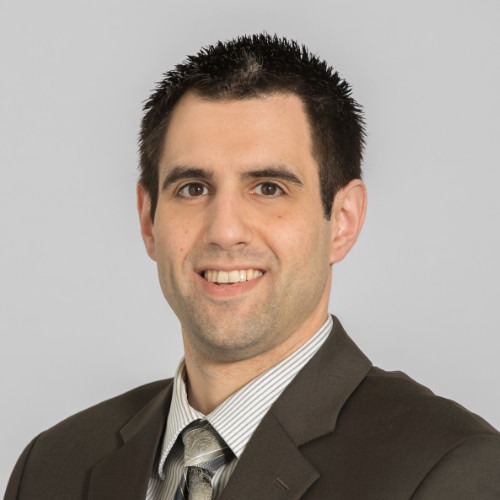Crafting a revolution
On September 27, 2007, hundreds of people gathered to carry out The Aging Revolution. Before you start imagining a mutinous cohort of elders, keep in mind this revolution was one that was up for discussion. Appropriately called a “summit” and conducted by Wesley Enhanced Living (WEL), a retirement community developer and operator based in Philadelphia, The Aging Revolution brought together aging services professionals and providers to debate senior housing, medical technology, and ethics. It was successful enough to warrant a second assembly this year on September 25, says Jeff Petty, president and CEO of WEL. Petty discusses the purpose, plan, and potential of the upcoming summit in this interview with Long-Term Living Staff Writer Kevin Kolus.
Kolus: What is the mission of WEL and how does it tie into The Aging Revolution Summit?
Petty: Our mission is to make a compelling difference in the lives of our residents through excellence and innovation in aging services. Like many organizations, we have a somewhat internal vision in the sense that we look to our residents. So how does the revolution tie into our mission? We wanted to create an environment—a forum if you will—to raise a critical dialogue on aging services in a different way than you might see at other places.
| “The end goal of this is to get the entire field to talk about the real issues. If we could get them all to do something, if they are just talking about it in their own way, it’s a homerun.” |
Kolus: How did it go?
Petty: Whatever we thought was going to happen, I feel that we exceeded any of our expectations. We had a lot of folks there. We had 430 who watched John Glenn (the astronaut who piloted the first American orbit of the Earth). We walked away with the attendees, virtually 90%-plus, rating the session excellent or good. We already have a number of people signing up from last year. Our feedback reflected a good deal of very effusive commentary, and many of our attendees were quite enlightened by the information they gleaned from our panelists—especially the commentary provided by David Walker, the then comptroller general of the U.S., who is speaking at this year’s summit as well.
Kolus: Why should long-term care providers attend this year’s summit?
A topic session on senior housing with panelists at Discussion Issues for the 2008 Summit •The impact of social security shortfalls and •Providing affordable CCRCs to seniors •Examining the cost efficiencies and effectiveness •Increased life expectancy and what this means for •Raising the retirement age as a possible solution If you have any ideas for your own aging services dialogue, |
Petty: What we think is a little bit different about our summit compared to other dialogues that are going on is if you look at various think tanks in Washington, D.C., for example, there are a number of them that are raising some really good issues by focusing on the government/public policy slant. But it’s hard to find them talking with providers. Our summit differs in that we focus on our nation’s funding and demographic challenges as they specifically impact the long-term care industry and providers. At the end of the day, it’s going to be the provider community that has got to deliver the services.
Kolus: Why did you choose Fred Thompson to deliver this year’s keynote?
Petty: We had a couple criteria back in the first summit about what we are looking for in keynotes. One of the criteria is we wanted someone at the national level. What I find really interesting about Thompson—other than just his national view of life and his work in healthcare—is how he’s reinvented himself a number of times. We have this notion of enhanced living, and we think it’s about finding and maintaining purpose in life. The field of aging historically has always thought about, “Well, you’re kind of done when you go into one of our programs,” and we think that is exactly backward. Here’s a guy who was a Washington insider back in the days of Watergate, went off and became an actor while he was a lawyer, then he came back to be a senator, and, recently, a presidential candidate. It’s almost like he retires from one thing and goes to another.
Kolus: How will the summit influence policy makers who govern long-term care?
| Grand ballroom and location of luncheon keynote. Photo: David DeBalko |
Petty: The more indirect way that we have influenced, or can influence, policy makers is just simply by having the forum. Even people who weren’t there appreciate that we are involved in this, and I think we get a reception when we take our ideas to various policy makers. Clearly, I would hope that we could influence the service providers. One way is by their participation, hearing about the ideas, talking about the ideas. But if we were really successful at the end of the day, they would do their own version of The Aging Revolution. The end goal of this is to get the entire field to talk about the real issues. If we could get them all to do something, if they are just talking about it in their own way, it’s a homerun.
*Note: The Summit features an opening forum and four topic sessions—two running concurrently in the morning as well as two in the afternoon. Each topic session is driven by three or four panelists from healthcare fields and one moderator from various media.
Click here for more information on The 2008 Aging Revolution.

Kevin Kolus wrote for I Advance Senior Care / Long-Term Living when he was an editor. He left the brand in 2012. He is now senior communications manager at Cleveland Clinic.
Related Articles
Topics: Articles











